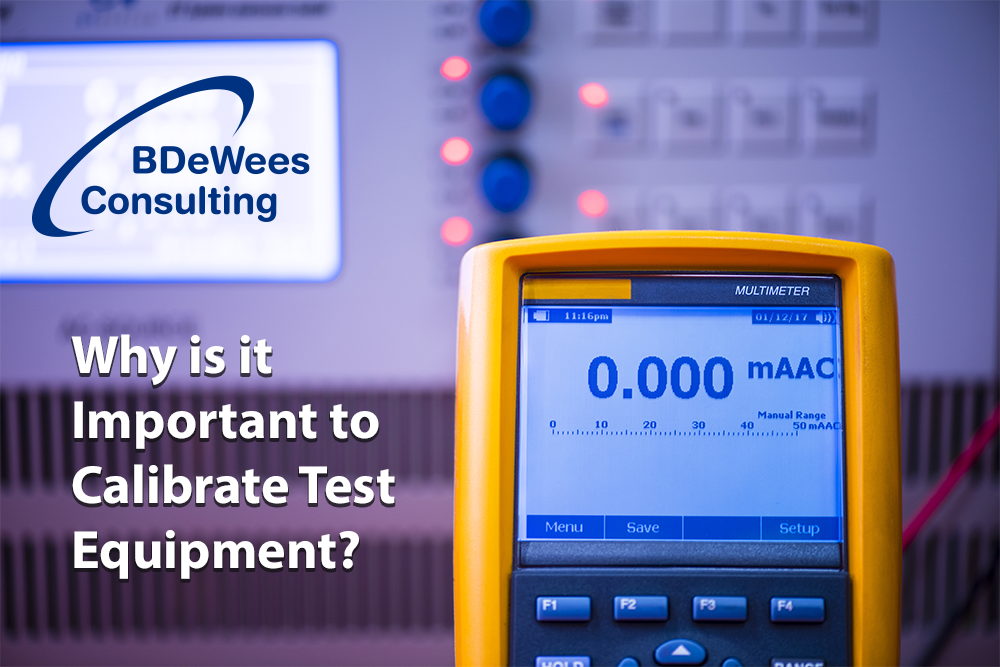Why is it Important to Calibrate Test Equipment?

Calibration has been defined by the International Bureau of Weights and Measures as an “Operation that, under specified conditions, in the first step, establishes a relation between the quantity values with measurement uncertainties provided by the measurement standards and corresponding indications with associated measurement uncertainties (of the calibrated instrument or secondary standard) and, in the second step, uses this information to establish a relation for obtaining a measurement result from an indication”.
Why Calibrate your instruments? Here are three main reasons:
- To ensure readings from an instrument are consistent with other measurements.
- To determine the accuracy of the instrument readings.
- To establish the reliability of the instrument i.e. that it can be trusted.
Checking two meters and seeing if they give you the same reading isn’t calibration. It is a field check. This type of checking can show you if there’s a problem, but it can’t show you which meter is correct. Calibration typically requires a standard that has at least 10 times the accuracy of the instrument under test. Otherwise, you are calibrating within overlapping tolerances and the tolerances of your standard render an “in cal” instrument “out of cal” or vice-versa.
When should we calibrate? Calibration is required for:
- Testing a new instrument
- Testing an instrument after it has been repaired or modified
- Periodic testing of instruments
- Testing after the specific usage has elapsed
- Prior to and/or after a critical measurement
- When observations are not accurate or instrument indicators do not match the output of a surrogate instrument
- After events, such as:
- An instrument has had a shock, vibration, or exposure to adverse conditions, which can put it out of calibration or damage it.
- Sudden weather changes
What could go wrong if you don’t calibrate your equipment?
- Inaccurate results
- Poor reliability
- Equipment downtime
- Safety risks
- Wasted time and effort
- Lost customers
- Financial issues
It’s important to have your test equipment regularly calibrated and maintained. Whether you are using test equipment for your client’s facilities or acquiring test equipment for your own business, calibration is an essential process that should not be neglected. If you are looking for assistance in this area, contact Jim DePew below.
Jim DePew
Vice President & Consultant
Mobile: (330) 631-9022
Office: (330) 915-2355 Ext: 103
Email: jdepew@bdewees.com
